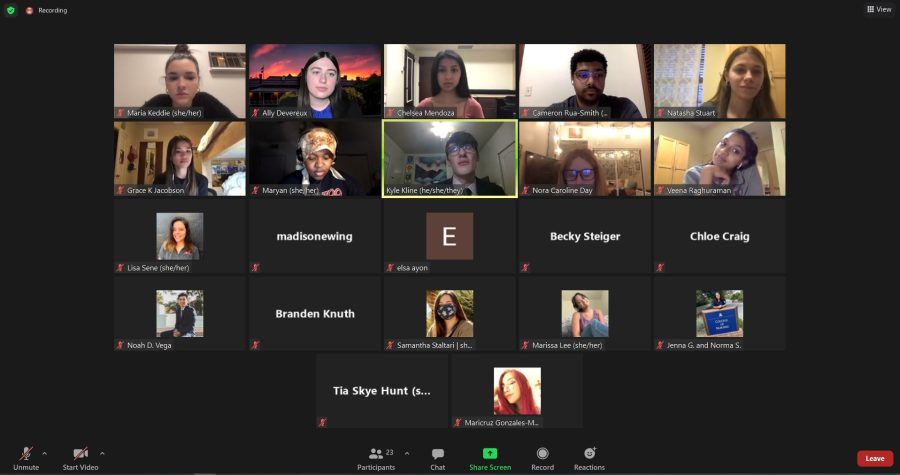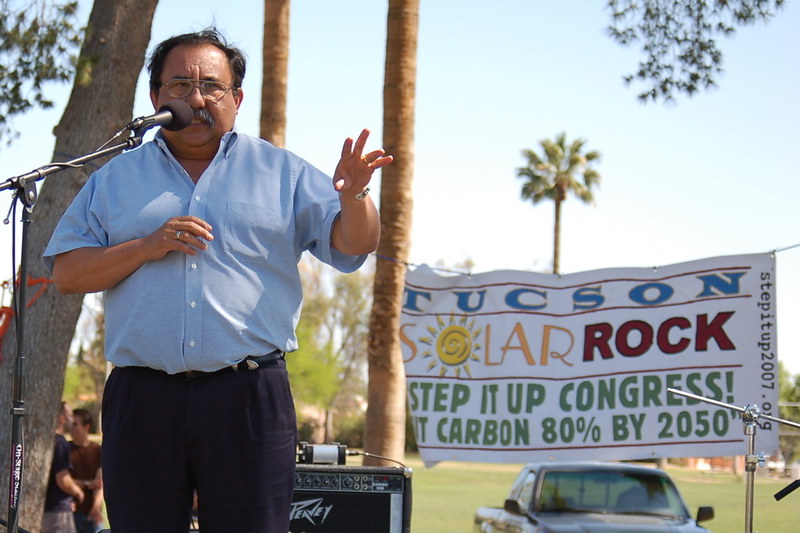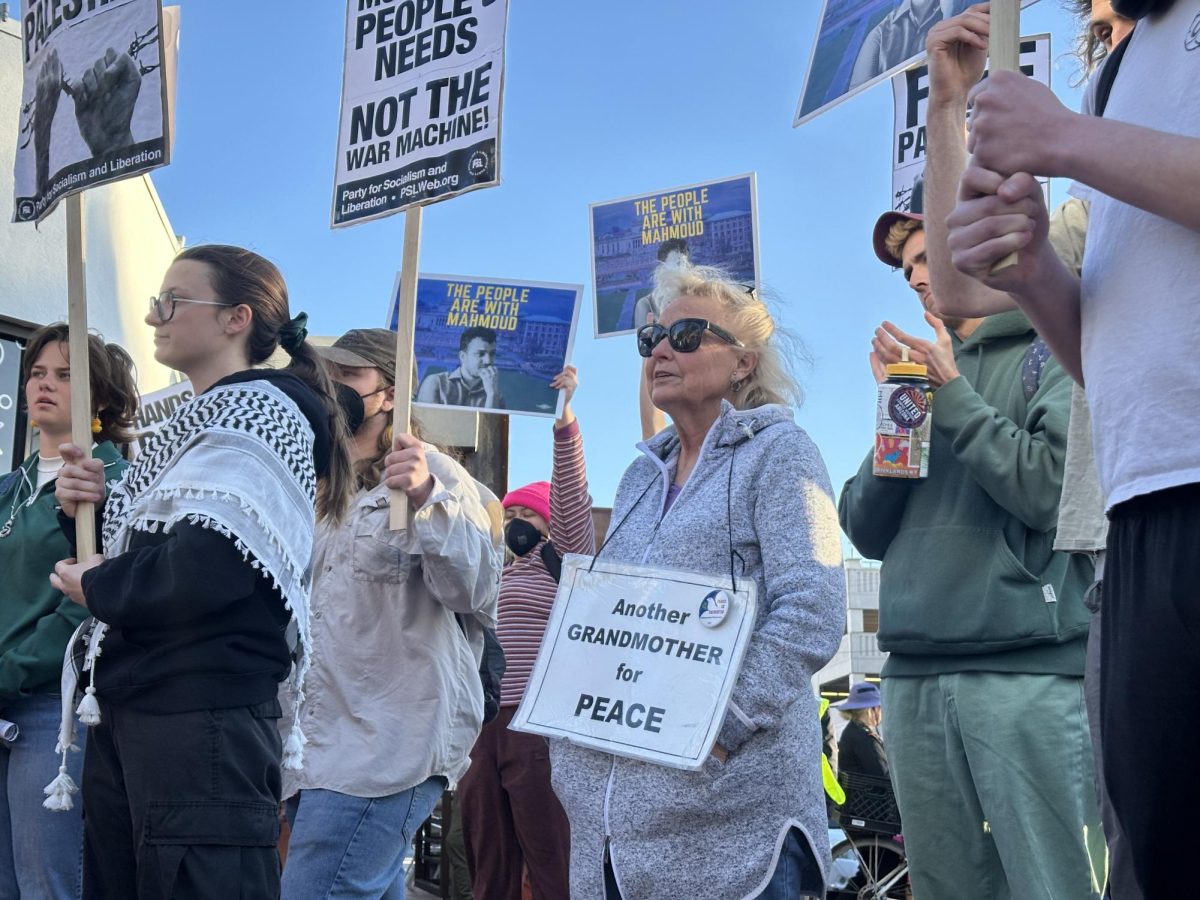The administrative and executive vice president candidates all expressed their desire to serve students and navigate relationships with administration during the debate/Q&A event hosted by the Associated Students of the University of Arizona Thursday, March 25.
ASUA, the university’s undergraduate student governing body, is holding elections at the end of March for the next governing body. In this year’s race, the administrative vice president position has only one candidate running uncontested this year, Kyle Kline. The administrative vice president position has two candidates, current Senator for the College Social and Behavioral Sciences Alexandra Devereux and current at-large Senator Nora Day.
Kline is a junior double majoring in environmental studies and political science. Their platform as AVP includes student empowerment, sustainability and increased student accessibility into ASUA.
“I decided to run for AVP after serving as a waste reduction committee co-chair and SFS for two years and getting to do a lot of awesome things on campus, but really seeing a lot of the institutional barriers that the ASUA programs and services have in order to achieve their goals,” Kline said.
Given that the pandemic has impacted students beyond their physical health, Kline was asked what initiatives they would support to meet student wellness needs, including mental health, food instability and financial trouble.
“I think a lot of that is going to come through the avenues of SHAC [Student Health Advocacy Committee], Campus Pantry, Campus Closet and making sure that they actually have the funds and resources and capacities to meet their own mission and goals,” Kline said. They also said they have scheduled meetings with student organizations on campus like SHAC to assess their needs and provide assistance moving forward.
Another question asked of Kline was how they would incorporate intersectionality into requests for institutional support for student support programs, in addition to holding administrators accountable for offered support. They said the first step was making reparations as a university that is considered a Hispanic-serving institution and land grant university.
“We have to recognize, firstly, that this institution was built on the fact that we stole land from native peoples across this country and committed mass genocide to build the university that we all attend today,” Kline said. “And I think that’s absolutely imperative in conversations with administration to recognize we need to be making redress for the harms that we’ve caused, not necessarily us, but the institutions provided by those foundations at large.”
Another goal for Kline is creating a power map – a visual representation of the flow of power within UA administration – and then making that map publicly available to UA students. They said this power map will help students respond efficiently and effectively when they want to communicate their disagreement with an administrative decision, especially ones that impact marginalized students.
Executive vice president candidates Devereux and Day expressed similar sentiments about supporting marginalized communities during their debate.
In terms of actionable items to support marginalized communities, Devereux stressed the lack of communication between students and administration.
“I feel like there’s this lack of communication,” Devereux said. “There seems to be a barrier between the people in charge and the people and students who have issues or are in marginalized communities, and I think the biggest thing is creating that connection.”
Day said she previously met with resource center directors about programming that could be implemented in ASUA.
“We talked a lot about what programming can be done to improve the education of students at the University of Arizona, so we’re all educated and we’re all understanding of the topics, the problems and the perspective of the members of marginalized communities … that was really powerful and something that I would like to continue on a larger scale with ASUA,” Day said.
A consistent problem ASUA has faced throughout the year is visibility on campus; Devereux suggested higher visibility especially with freshmen.
“I think definitely reach[ing] students where they are the most, especially freshman year,” she said. Devereux specifically mentioned more Instagram and social media outreach, in addition to more presence in locations like the Student Union on campus.
When asked about the relationship between ASUA and administration, Day said that communication was likely responsible for previous conflicts.
“I really want to forge a relationship with higher ups so that they understand where we are and they respect our positions,” Day said. “There’s a fine line here between pushing and making sure that we advocate, because we exist for the students. Our job is to advocate for them and represent all of you.”
ASUA’s general election will be held March 30-31. For more information, visit ASUA’s Election Instagram.
Follow Priya Jandu on Twitter









